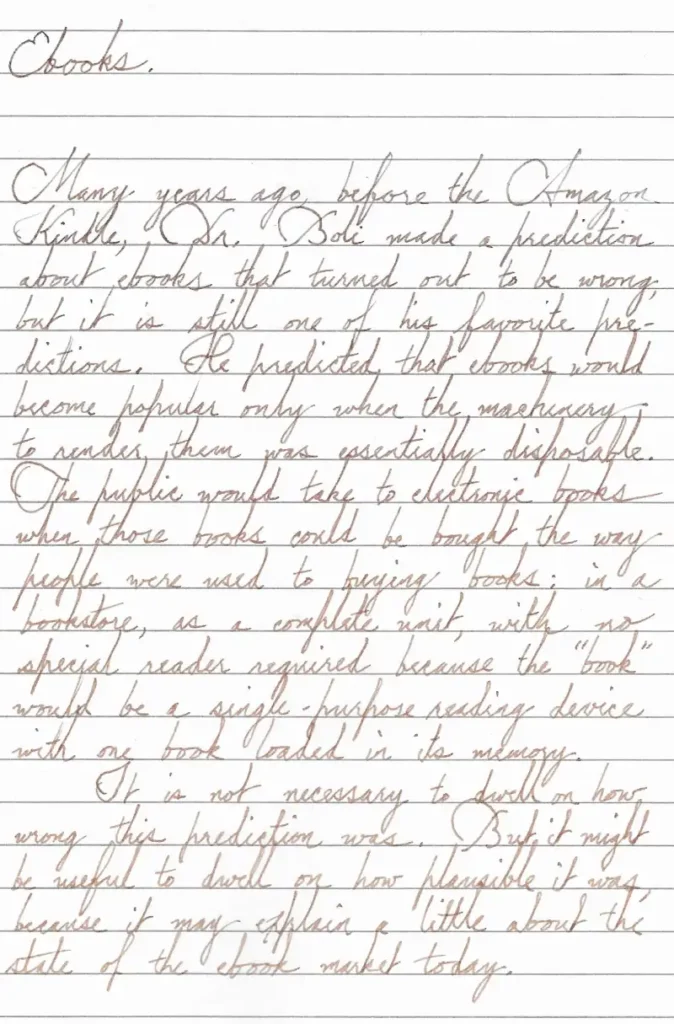
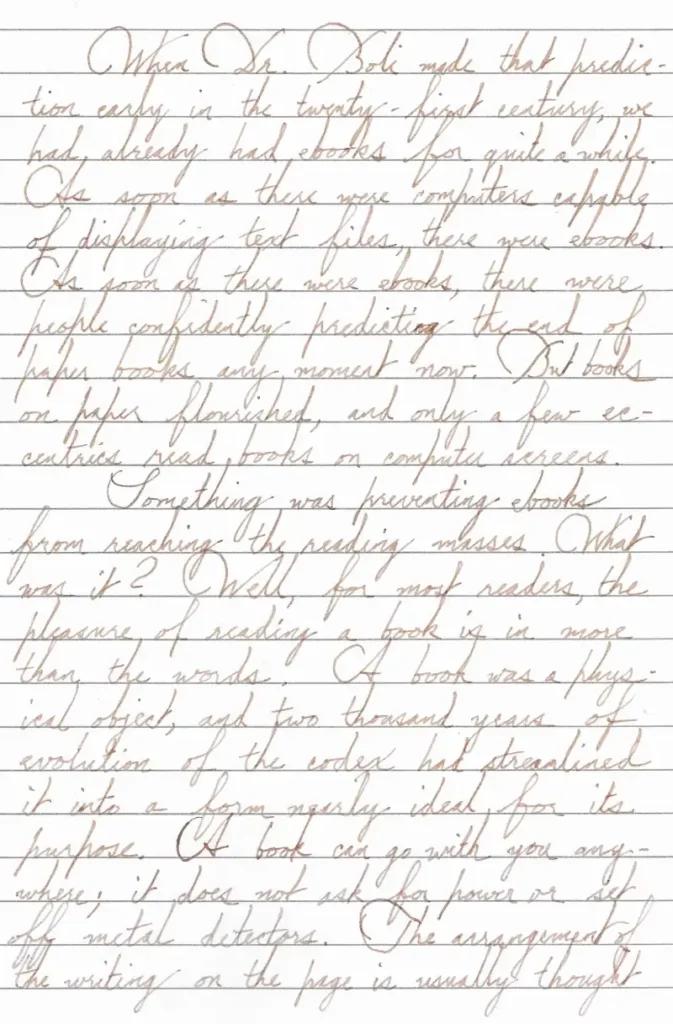
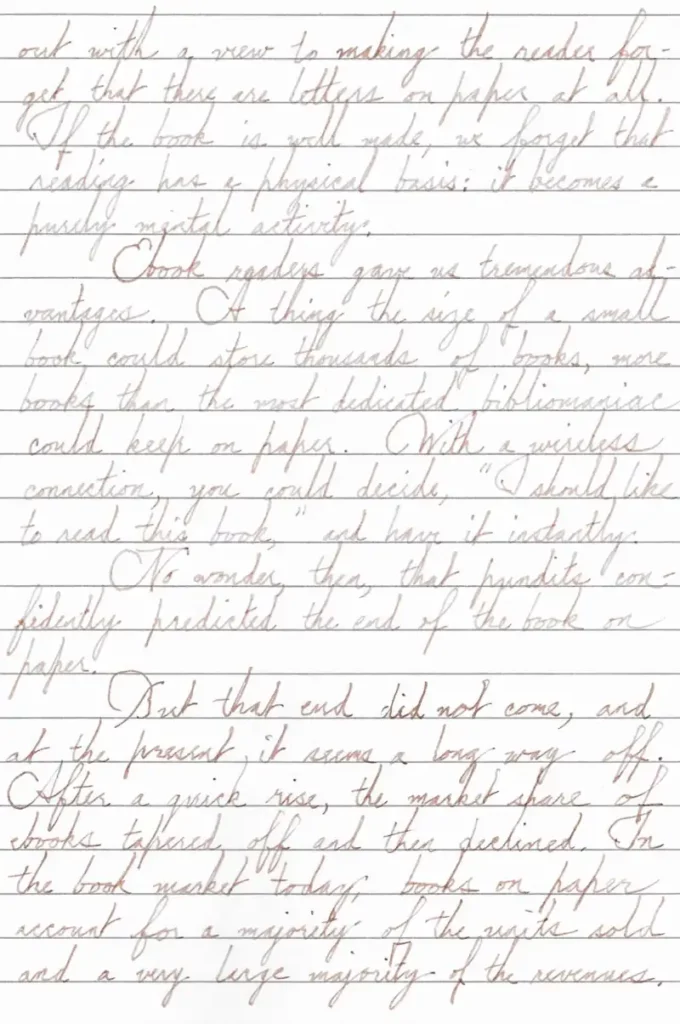


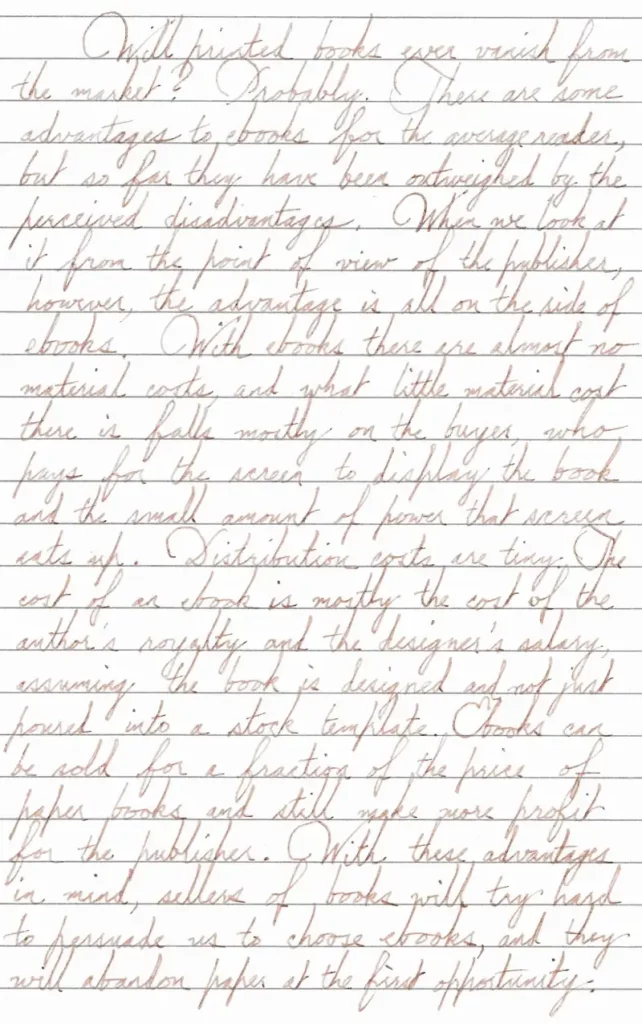
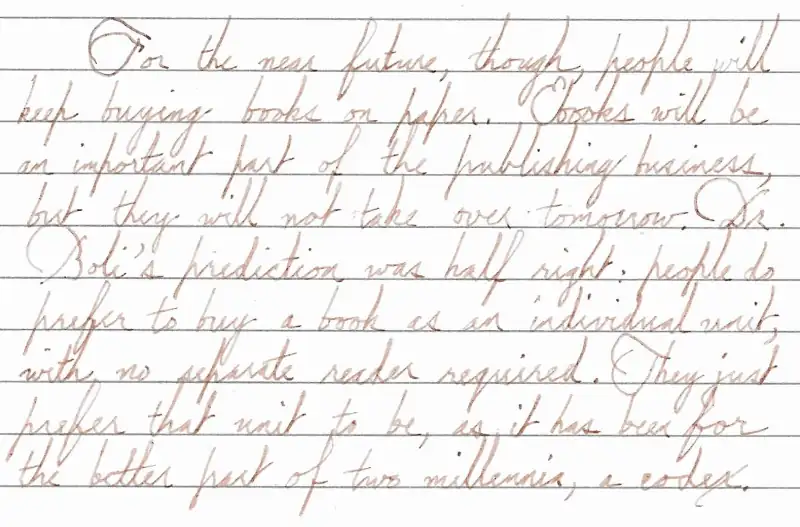
Transcribed below.
Many years ago, before the Amazon Kindle, Dr. Boli made a prediction about ebooks that turned out to be wrong, but it is still one of his favorite predictions. He predicted that ebooks would become popular only when the machinery to render them was essentially disposable. The public would take to electronic books when those books could be bought the way people were used to buying books: in a bookstore, as a complete unit, with no special reader required, because the “book” would be a single-purpose reading device with one book loaded in its memory.
It is not necessary to dwell on how wrong this prediction was. But it might be useful to dwell on how plausible it was, because it may explain a little about the state of the ebook market today.
When Dr. Boli made that prediction early in the twenty-first century, we had already had ebooks for quite a while. As soon as there were computers capable of displaying text files, there were ebooks. As soon as there were ebooks, there were people confidently predicting the end of paper books any moment now. But books on paper flourished, and only a few eccentrics read books on computer screens.
Something was preventing ebooks from reaching the reading masse s. What was it? Well, for most readers, the pleasure of reading a book is in more than the words. A book was a physical object, and two thousand years of evolution of the codex had streamlined it into a form nearly ideal for its purpose. A book can go with you anywhere; it does not ask for power or set off metal detectors. The arrangement of the writing on the page is usually thought out with a view to making the reader forget that there are letters on paper at all. If the book is well made, we forget that reading has a physical basis: it becomes a purely mental activity.
Ebook readers gave us tremendous advantages. A thing the size of a small book could store thousands of books, more books than the most dedicated bibliomaniac could keep on paper. With a wireless connection, you could decide, “I should like to read this book,” and have it instantly.
No wonder, then, that pundits confidently predicted the end of the book on paper.
But that end did not come, and at the present it seems a long way off. After a quick rise, the market share of ebooks tapered off and then declined. In the book market today, books on paper account for a majority of the units sold and a very large majority of the revenues. The most interesting fact is that surveys consistently show about two-thirds of young readers—readers in their teens and twenties—preferring paper books to ebooks. These are the readers who will drive the book market in decades to come, and most of them have lived all their lives in a world where they could have ebooks if they wanted them.
In other words, even young people who have known about ebooks all their lives prefer to have a book as an individual unit.
Dr. Boli’s instinct was at least partly right. Readers do prefer a book that is an identifiable object as well as a string of words. Furthermore, this preference is not mere nostalgia, since it is shared by readers who have never known a world without ebooks.
Now, why would even young readers like books on paper better than books on screens? There are probably as many reasons as there are readers, but Dr. Boli is convinced that ebooks became too popular too early. The Amazon Kindle was an enormous success, and Amazon controls the market. Even well-designed ebooks look primitive compared to a printed book from a good publisher. There have been many incremental improvements in the presentation of ebooks, but the basic technology froze at a very early stage. Because there is only one important seller in the ebook market, competition is not stimulating rapid development. In the ebook market, Amazon can sell bad-looking books, and no one will reject them in favor of someone else’s ebooks. But it seems there are many readers who do reject them in favor of printed books. To that extent, there is competition in the market, and the competition is winning.
Will printed books ever vanish from the market? Probably. There are some advantages to ebooks for the average reader, but so far they have been outweighed by the perceived disadvantages. When we look at it from the point of view of the publisher, however, the advantage is all on the side of ebooks. With ebooks there are almost no material costs, and what little material cost there is falls mostly on the buyer, who pays for the screen to display the book and the small amount of power that screen eats up. Distribution costs are tiny. The cost of an ebook is mostly the cost of the author’s royalty and the designer’s salary, assuming the book is designed and not just poured into a stock template. Ebooks can be sold for a fraction of the price of paper books and still make more profit for the publisher. With those advantages in mind, sellers of books will try hard to persuade us to choose ebooks, and they will abandon paper at the first opportunity.
For the near future, though, people will keep buying books on paper. Ebooks will be an important part of the publishing business, but they will not take over tomorrow. Dr. Boli’s prediction was half right: people do prefer to buy a book as an individual unit, with no separate reader required. They just prefer that unit to be, as it has been for the better part of two millennia, a codex.

Leave a Reply to Charles Louis de Secondcat, baron de La Brèed et de Montemeow Cancel reply